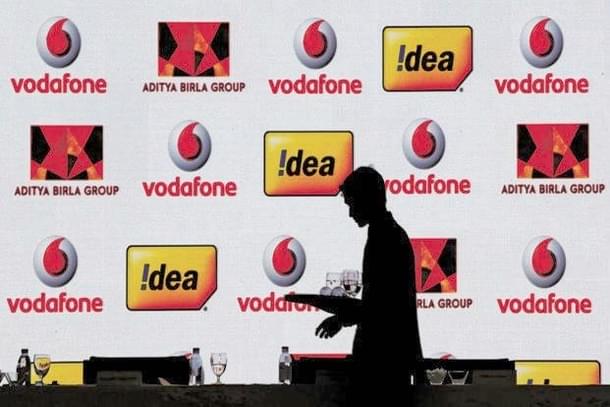Business
Why Vodafone Idea Is Looking Like The Weakest Among India’s Telecom Trio
R Jagannathan
Nov 01, 2019, 11:52 AM | Updated 11:47 AM IST
Save & read from anywhere!
Bookmark stories for easy access on any device or the Swarajya app.


Vodafone Group plc, the senior joint venture partner in financially precarious Vodafone India, has denied it is planning to exit India. It has junked rumours to this effect as “unfounded”, “baseless” and “malicious”.
What, however, is not so unfounded, baseless or malicious is the reality that without government willingness to support the sector financially by forgoing dues and penalties, Vodafone Idea is the most vulnerable among the ‘Big Three’ of Indian telecom.
The markets either already know this or suspect this. At the time of writing, the company, possibly still the country’s largest in terms of subscriber base by a nose, is valued at all of Rs 12,000 crore. The share price, at Rs 4.60 around 11 am on Friday (1 November), has fallen by nearly a two-thirds from the Rs 12.50 price at which its two promoters – Vodafone and the Aditya Birla Group – invested Rs 25,000 crore between them in a rights issue.
Both promoters have thus seen wealth destruction of around Rs 7,500 crore, and it could get worse unless the government steps in to bail them out with appropriate policy changes and a willingness to forgo dues or write them off substantially.
The Rs 25,000 crore in cash it raised through the rights issue in May will probably be exhausted by mid- or late fiscal 2020-21, which is barely a year away.
Besides, huge costs are headed its way, precipitated by the Supreme Court’s decision to uphold the government’s definition of “adjusted gross revenue” (AGR), which is the basis for calculating licence fees and spectrum usage charges. Analysts believe that the biggest loser would be Vodafone Idea.
The sector’s total dues add up to Rs 1.4 lakh crore, a figure that includes not only the basic dues, but also penalties and interest on penalties not paid. The government is unlikely to waive the basic dues, but could be more compassionate on the terms of payment and waivers of penalties and interest charges. Either way, Vodafone is going to see cash drain away steadily.
As at the end of March 2019, Vodafone Idea had debts of Rs 1.08 lakh crore, and if the 5G auction is held anytime this year, this debt can only rise. So, apart from government benevolence, Vodafone Idea may also need debt recast, though this is not on the table right now.
The real issue for Vodafone Idea is probably not even financial. It could be the differing financial and strategic priorities of its two promoters. While neither Vodafone nor the Aditya Birla group is incapable of raising the amounts required, their Indian telecom operations are hardly the only ones needing large infusions of equity.
While Airtel can raise money by monetising its African assets or asking its major foreign shareholders to cough up more in equity, and Reliance Jio can depend on its cash-rich parent Reliance Industries to bankroll its ambition to be No 1 in both revenues and subscriber market shares, Vodafone Idea has the additional task of reconciling two different appetites for risk when making future investments.
The challenge is worth repeating: without government munificence and promoter willingness to invest for the long term, Vodafone Idea is really the most vulnerable company in the private sector triumvirate that includes Jio and Airtel. If one had to bet on which one will blink first, one has to bet on Vodafone Idea, or at least one of its two promoters.
If this were not the case, the markets would not be telling this simple story: any buyer with Rs 12,000 crore, and with an appetite for taking on debt, can own a third of the Indian telecom market instantly. Contrast that with Bharti Airtel’s market value of Rs 1.9 lakh crore – more than 15 times Vodafone Idea’s valuation – for a company with comparable business scale.
Jagannathan is former Editorial Director, Swarajya. He tweets at @TheJaggi.





